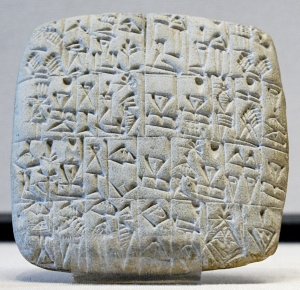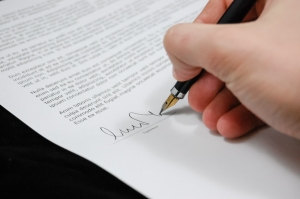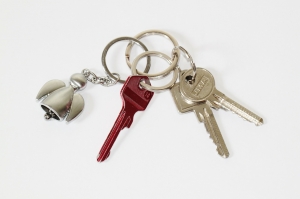Put bluntly, the contracts are exchanged when all the nuts and bolts in regard to the sale of a property have been agreed, including the completion date. The completion date itself is when any outstanding balance changes hands from buyer to seller along with the keys of the house.The deeds will not be changed at the Land Registry straight away. This can take up to 4 weeks for a freehold transfer and around 3-4 months for a transfer of part i.e. land, a right to buy property or a leasehold property. This is due to Land Registry timescales.

Sumerian bill of sale from almost 5000 years ago!
The contract will include:
• sale price
• included fixtures and fittings, such as carpets and kitchen units
• completion date
When you are selling a property, your solicitor will draft the initial contract and they will help you answer any questions from the buyer. The conveyancers are key to negotiating the details in the contracts and reaching an agreement.

The contracts will have been drawn up to accurately spell out the agreement made between the buyer and seller of the house. As in any business transaction sometimes points are contested or clarified until both parties are happy. When the conveyancers have acceptable correspondence that reflect the terms outlined by their clients they will then speak with the other party solicitors to exchange contracts on the telephone. Thereafter, the contracts will be posted to the other party solicitors.

Once the contracts have been exchanged the buyer and seller have entered into a binding agreement. The seller is now bound to sell to the buyer even if they receive a better offer from elsewhere and the buyer cannot be ‘gazumped’. At the same time, the buyer is now committed to buy the property and cannot back out without losing a deposit amount of 10% of the sale price.
If you are buying a property, your solicitor will have made sure that:
• any queries you had about the house have been addressed by the seller (through their solicitor)
• the fixtures and fittings included in the purchase are what you expected (visit the property and check)
• a completion date has been agreed
• arrangements have been made to secure the transfer of the deposit (usually 10%) in good time for the exchange

The seller may agree to accepting a smaller deposit of say 5% at the exchange of contracts stage
however if the buyer cancels the sale later on they are liable to make a payment of 10% of the sale price. Therefore, if a smaller deposit (less than 10%) is agreed and the buyer backs out they will find themselves owing money to the seller.
The mortgage offer should be provided to the solicitor as soon as possible. Contracts cannot be exchanged without the mortgage offer being in place and all lenders conditions satisfied. Please ensure that your correct names are quoted on the mortgage offer; if not, it will be necessary for the lender to carry out a further credit check and then amend the mortgage offer.
Once the contracts have been exchanged the seller has committed to sell the property to the buyer. If they change their mind, the buyer can sue them.

The completion date can be any time; from a week away, a month away and sometimes, even the same day. Just before completion takes place, the buyer’s solicitor will lodge an interest in the property which will mean that the deeds to the property are frozen for 30 working days in order that the buyer’s interest is noted and that no other charge can be registered against the property during that time.
The seller will need to move out of the property before the agreed time on the completion date (usually midday) and ensure that the property is left in the state that the buyer expects to find it. The buyer will need to arrange their move into the property and organise payment of the outstanding balance into their conveyancing solicitor’s bank account.

It is advisable to ensure the money reaches the account at least one full working day before the completion date.
This is the big day, when the buyer’s conveyancer transfers the outstanding balance into the account of the seller and the buyer becomes the new owner of the property. The sale is complete and the new owner can move into the property. Buyer and seller can finally let off a sigh of relief knowing the transaction has completed successfully.

The buyer’s solicitor will still have a few duties to carry out such as paying Stamp Duty Land Tax on behalf of the buyer and notifying the freeholder if the property is leasehold. Once they have received the documents from the seller’s solicitors and the property has been registered into the name of the buyer, the solicitors will send a copy of the title to the buyer’s mortgage lender – please note that deeds themselves were dematerialised in 2003. This means that any pre-registration deeds and documents will be forwarded to the owner of the property and not the lender. The lender merely receives a copy of the title document which, in most instances, is around 3 pages long.
The buyer is strongly advised to gather all relevant documents relating to the property purchase and to keep them in a safe place.
If you are buying or selling a property getting the right conveyancer is paramount to ensure the transaction runs as smoothly as possible. To ensure you get a comprehensive and reliable service, contact us today.